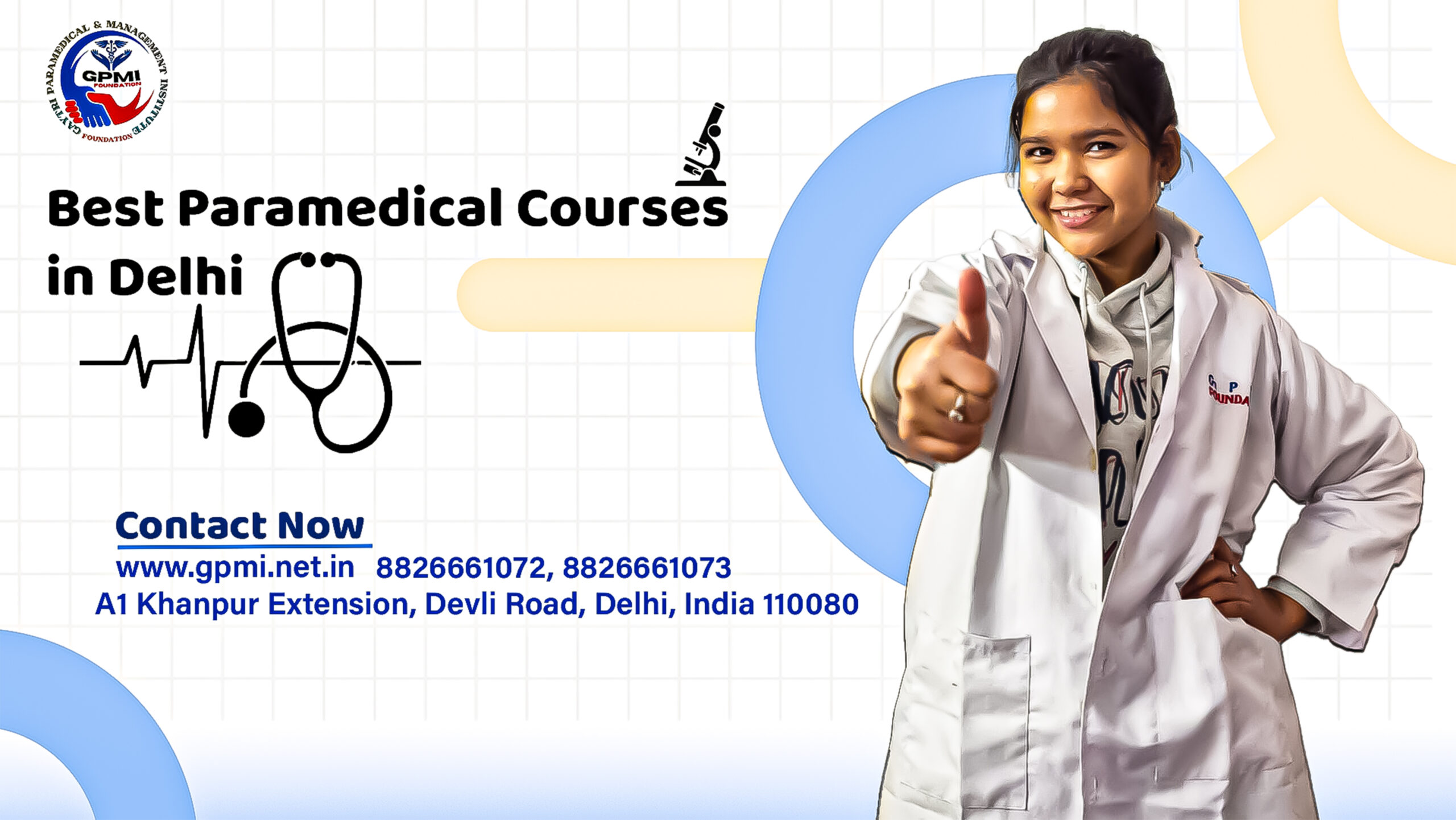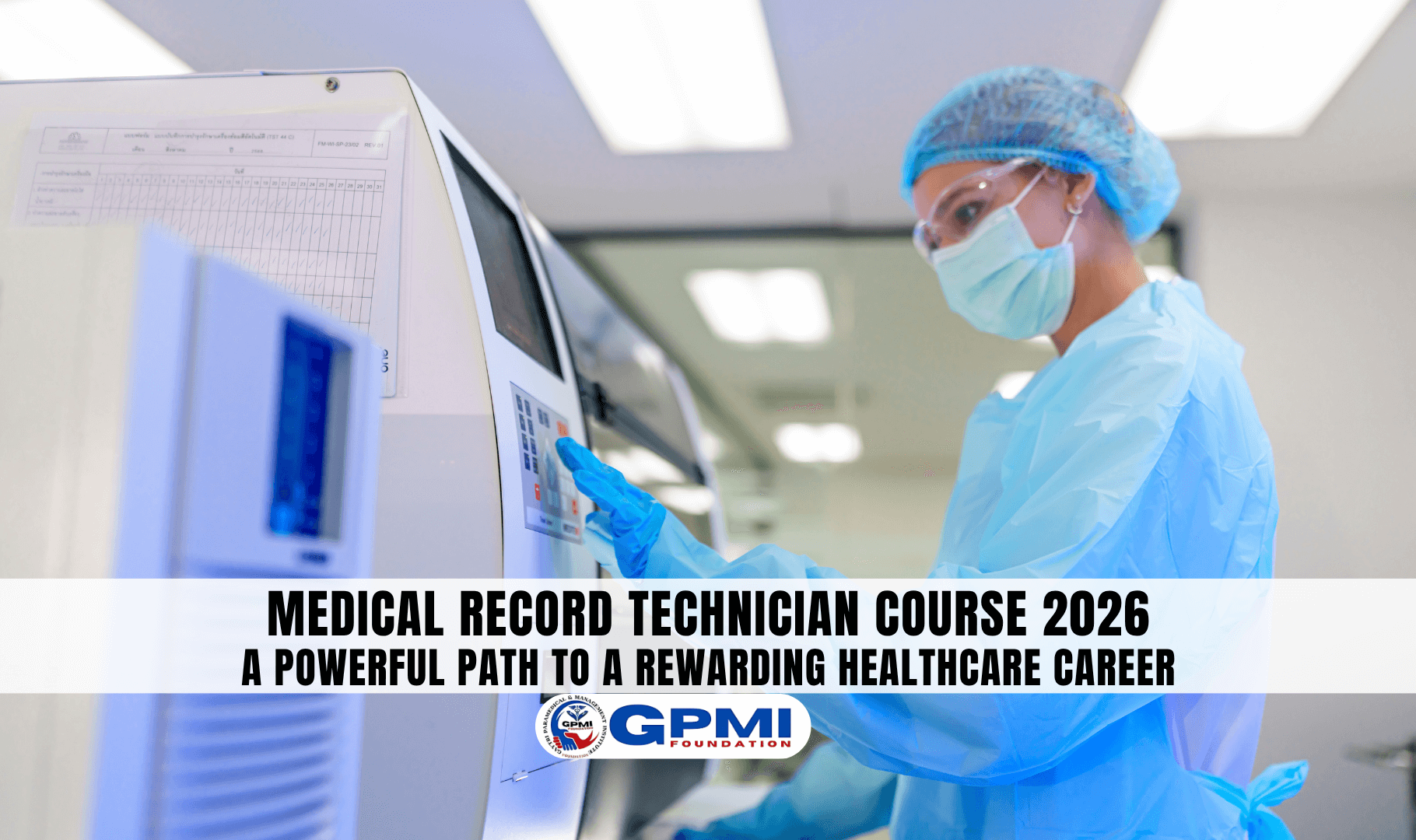Medical Laboratory Technology (MLT) is a vital field in the healthcare sector, focusing on laboratory testing to detect, diagnose, and treat diseases. The MLT course equips students with the skills to handle laboratory equipment, collect samples, and perform diagnostic tests.
As the healthcare industry expands, the need for skilled lab technicians continues to grow. MLT professionals play a crucial role in analyzing body fluids, tissues, and other medical samples to assist doctors in accurate diagnosis and treatment.
With advancements in medical technology and increased awareness of preventive healthcare, the demand for qualified MLT graduates is expected to rise significantly in Coming years. This article explores the scope, salary, and career opportunities for MLT professionals in the upcoming year.
Table of Contents
What is MLT?
Medical Laboratory Technology (MLT) is a specialized field that involves the study of laboratory techniques used in the diagnosis, treatment, and prevention of diseases. It focuses on training students to handle laboratory equipment, collect and analyze patient samples, and conduct various diagnostic tests.
MLT professionals play a critical role in healthcare by assisting doctors and medical practitioners in identifying health conditions through laboratory results.
MLT courses are offered at different levels, including Diploma, Advanced Diploma, and Bachelor’s Degree programs. These programs cover essential subjects such as clinical biochemistry, microbiology, hematology, immunology, and pathology.
Students also gain hands-on training in operating laboratory instruments, maintaining lab safety protocols, and accurately recording test data. Graduates can work in hospitals, diagnostic centers, research labs, and blood banks.
What is MLT Course?

The MLT (Medical Laboratory Technology) course is a specialized program that prepares students to work in medical laboratories where they perform diagnostic tests and procedures.
It is designed to equip students with the skills to handle laboratory equipment, collect blood and tissue samples, and conduct tests that help doctors diagnose diseases.
MLT Course Details
| PARTICULAR | DETAILS |
| MLT Course Full Form | Medical Laboratory Technology |
| MLT Course Qualification | Diploma in MLT: 10th pass or 12th pass Advanced Diploma in MLT: 12th pass B.Voc. MLT: 12th pass B.Sc. MLT: 12th pass with science PG Diploma in MLT: Bachelor’s degree in MLT |
| MLT Course Fees in Private College | Diploma in MLT: ₹30k to ₹1,00k per year Advanced Diploma in MLT: ₹40k to ₹1,20k per year B.Sc/B.Voc. MLT: ₹50k to ₹1,50k per year PG Diploma in MLT: ₹60k to ₹2,00k per year |
| MLT Course Fees in Government Colleges | Diploma in MLT: ₹5,000 to ₹20,000 per year Advanced Diploma in MLT: ₹10,000 to ₹30,000 per year Bachelor’s Degree in MLT (B.Voc. MLT): ₹15,000 to ₹50,000 per year PG Diploma in MLT: ₹20,000 to ₹60,000 per year |
| MLT Course Salary | Diploma in MLT: ₹1.5 to ₹2.5 lakh per year Advanced Diploma in MLT: ₹2 to ₹3.5 lakh per year B.Sc/B.Voc. MLT: ₹2.5 to ₹4.5 lakh per year PG Diploma in MLT: ₹3 to ₹5 lakh per year |
| MLT Course Subjects | Human Anatomy and Physiology, Clinical Biochemistry Medical Microbiology, Hematology and Blood Banking Immunology and Serology, Histopathology and Cytology Clinical Pathology, Virology and Mycology, Parasitology Molecular Diagnostics, Medical Ethics and Professionalism Laboratory Management and Quality Control Computer Applications in Labs Research Methodology and Biostatistics Practical Training and Internship |
| B.Voc/ B.Sc MLT Course Fees | 1. Government Colleges: ₹15k to ₹50k per year 2. Private Colleges: ₹50k to ₹1,50k per year 3. Deemed/Private Universities: ₹1,00k to ₹2,50k per year |
| BSc/ B.Voc. MLT Course Duration | Both B.Sc. (Bachelor of Science) in MLT and B.Voc. (Bachelor of Vocation) in MLT courses duration of 3 years or 6 semesters. |
MLT Course Eligibility
The qualification requirements for Medical Laboratory Technology (MLT) courses vary based on the course level:
- Diploma in MLT: 10th pass or 12th pass any stream.
- Advanced Diploma in MLT: 12th pass from any stream.
- B.Sc./B.Voc. in MLT: 12th pass for B.Voc. and for B.Sc. with science (Physics, Chemistry, Biology/Mathematics).
- PG Diploma in MLT: Bachelor’s degree in science (B.Sc. in Chemistry, Biochemistry, Biotechnology, Microbiology, or related fields).
Some institutes may also set minimum percentage criteria (e.g., 40-50% marks in the qualifying exam). Additionally, certain institutions may conduct entrance exams or personal interviews for admission to advanced courses.
BSc/ B.Voc. MLT Course Duration
The duration of both B.Sc. (Bachelor of Science) in MLT and B.Voc. (Bachelor of Vocation) in MLT is 3 years, divided into 6 semesters.
- 1st Year: Basics of laboratory technology, human anatomy, physiology, and microbiology.
- 2nd Year: Clinical biochemistry, pathology, hematology, and diagnostic techniques.
- 3rd Year: Advanced diagnostics, molecular biology, research methodology, and internship or practical training.
Some universities offer exit options:
- After 1 year: Diploma in MLT
- After 2 years: Advanced Diploma in MLT
- After 3 years: Full Degree (B.Voc. MLT)
NOTE:- Only the B.Voc. MLT course offers flexible exit options. You can earn a Diploma after 1 year, an Advanced Diploma after 2 years, or a Degree after 3 years. In contrast, the B.Sc. MLT course requires you to complete the full 3 years to receive a single Degree, with no option for early exit or intermediate certification.
The course also includes hands-on training in labs to prepare students for real-world diagnostic work.
B.Voc/ B.Sc MLT Course Fees
The fees for B.Voc (Bachelor of Vocation) in MLT and B.Sc (Bachelor of Science) in MLT vary based on the type of institution:
- Government Colleges: ₹15,000 to ₹50,000 per year
- Private Colleges: ₹50,000 to ₹1,50,000 per year
- Deemed/Private Universities: ₹1,00,000 to ₹2,50,000 per year
The fees typically cover tuition, lab charges, and examination fees. Additional costs may include uniforms, books, and internship fees.
Some colleges also offer scholarships or financial aid for meritorious and economically weaker students. Fees may vary slightly depending on the location, infrastructure, and reputation of the institution.
MLT Course Subjects
The Medical Laboratory Technology (MLT) course covers a wide range of subjects to prepare students for diagnostic laboratory work. The core subjects include:
- Human Anatomy and Physiology – Understanding the structure and function of the human body.
- Clinical Biochemistry – Study of body fluids and biochemical analysis.
- Medical Microbiology – Identification of microorganisms and their effects on health.
- Hematology – Analysis of blood components and blood-related disorders.
- Immunology and Serology – Study of immune responses and diagnostic testing.
- Clinical Pathology – Examination of bodily fluids and tissues for disease diagnosis.
- Histopathology and Cytology – Microscopic study of tissues and cells.
- Parasitology and Virology – Study of parasites and viruses affecting humans.
- Laboratory Management and Quality Control – Ensuring accuracy and safety in lab operations.
- Molecular Diagnostics – Techniques in genetic and molecular testing.
- Computer Applications in Labs – Data entry, record management, and lab software usage.
- Practical Training and Internship – Hands-on experience in clinical labs.
Subjects may vary slightly based on the course level (Diploma, B.Voc., B.Sc.) and the institution.
Career Scope After MLT Course

The demand for skilled Medical Laboratory Technicians (MLT) will continue to grow as healthcare facilities expand and diagnostic services become more advanced.
Completing an MLT course opens up diverse career opportunities in both the government and private sectors. MLT graduates play a critical role in the diagnosis and treatment of diseases through laboratory tests, making them valuable assets in the medical field.
Here are some promising career paths after completing an MLT course:
- Laboratory Technician: Work in hospitals, diagnostic centers, and research labs, conducting tests on blood, urine, and tissue samples.
- Pathology Technician: Assist pathologists in analyzing samples for disease detection.
- Blood Bank Technician: Manage blood storage, conduct blood tests, and handle blood transfusion procedures.
- Research Assistant: Assist in medical research, data collection, and laboratory experiments.
- Quality Control Analyst: Ensure lab equipment and procedures meet quality standards.
- Medical Lab Supervisor: Oversee lab operations, maintain records, and manage lab staff.
- Medical Coding Specialist: Analyze medical data and assign diagnostic codes for insurance claims.
With the rise in diagnostic testing and preventive healthcare, MLT professionals can expect steady job growth and attractive salary packages.
Salary Range After MLT Course
The salary range for Medical Laboratory Technology (MLT) professionals varies based on qualification, experience, job role, and location. Fresh MLT course graduates with a Diploma or Advanced Diploma can expect starting salaries ranging from ₹1.5 to ₹2.5 lakh per year, typically in entry-level roles like Lab Technician or Blood Bank Assistant.
Those with a Bachelor’s Degree (B.Sc/B.Voc in MLT) generally earn higher, with annual salaries ranging from ₹2.5 to ₹4.5 lakh. With experience, they can move into specialized roles like Pathology Technician, Quality Control Analyst, or Lab Supervisor, earning up to ₹6 lakh per year.
Experienced MLT professionals or those with a PG Diploma in MLT can command salaries between ₹4 to ₹7 lakh per year, especially in advanced diagnostic labs, research centers, and hospitals.
Senior positions like Lab Manager or Medical Coding Specialist can earn above ₹8 lakh per year, especially in metropolitan cities or private hospitals.
Top Recruiters for MLT Graduates
Medical Laboratory Technology (MLT) graduates are in high demand across various healthcare sectors due to the rising need for diagnostic testing and disease monitoring. Top recruiters for MLT graduates include hospitals, diagnostic labs, research centers, and blood banks.
Leading private hospitals like Apollo Hospitals, Fortis Healthcare, Max Healthcare, and Manipal Hospitals actively hire MLT professionals for roles such as Lab Technician, Pathology Assistant, and Quality Control Analyst.
Diagnostic chains like Dr. Lal PathLabs, SRL Diagnostics, Thyrocare, and Metropolis Healthcare also recruit MLT graduates for sample collection, testing, and reporting. Government hospitals, medical colleges, and public health departments offer opportunities in lab management and research.
Pharmaceutical companies and biotech firms such as Ranbaxy, Cipla, and Biocon hire MLT graduates for research, data analysis, and lab testing. Additionally, blood banks, organ transplant centers, and forensic labs provide specialized roles for experienced MLT professionals.
Skills Required for a Successful MLT Career
A successful career in Medical Laboratory Technology (MLT) requires a blend of technical and interpersonal skills.
- MLT professionals must possess strong analytical skills to accurately conduct laboratory tests and interpret results.
- Attention to detail is crucial, as minor errors can lead to incorrect diagnoses.
- Proficiency in laboratory equipment handling and familiarity with advanced diagnostic tools are essential.
- Effective communication skills help in reporting findings clearly to doctors and healthcare teams.
- Additionally, MLT professionals need time management skills to handle multiple tests efficiently.
- Other vital skills include problem-solving abilities for identifying test anomalies.
- Basic computer knowledge for maintaining patient records, and ethical integrity to ensure patient confidentiality.
Staying updated with the latest advancements in laboratory techniques and diagnostic procedures also enhances career prospects in this rapidly evolving field.
Conclusion
The scope for Medical Laboratory Technology (MLT) continues to expand as the demand for diagnostic services rises in hospitals, diagnostic centers, and research labs. MLT graduates play a crucial role in disease detection and treatment through laboratory tests, making them indispensable in the healthcare sector.
Career opportunities are abundant in areas like pathology labs, blood banks, medical research, and quality control. Additionally, pharmaceutical companies, forensic labs, and medical coding departments also provide rewarding job prospects.
With advancements in medical technology and increasing healthcare awareness, the demand for skilled MLT professionals is expected to grow, making it a promising career choice for those seeking stability and growth in the medical field.







